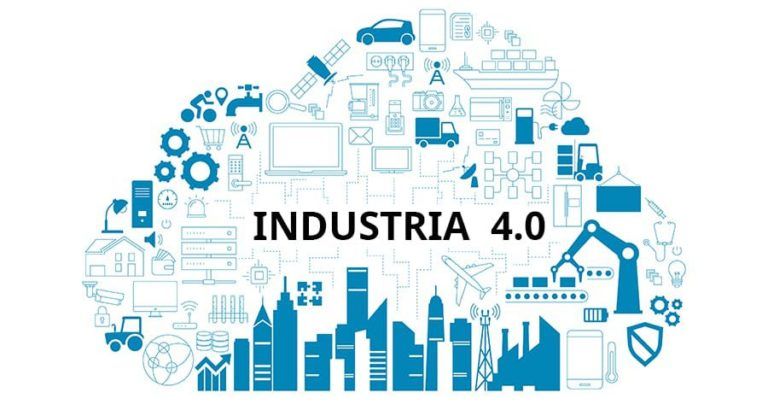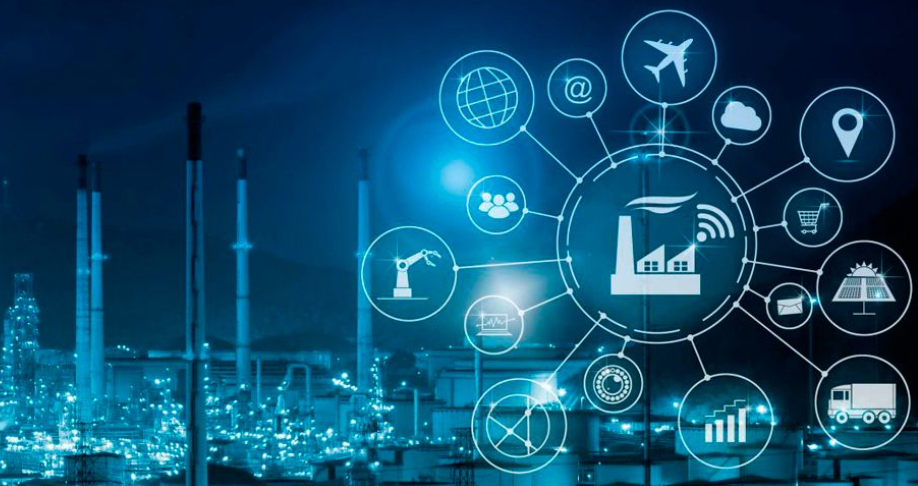We are in a stage of transformation in the way products and goods are manufactured, thanks to digitalization. This transition is known as Industry 4.0, a concept that originated in Germany. It is the term used to refer to the Fourth Industrial Revolution, which mainly involves interconnecting all parts of a company, leading to effective automation and a smarter enterprise..
Industry 4.0 Definition
Emerged with the aim of seeking an organization of all our productive means and all our company, the industry 4.0 consists of digitization of industry and all services related to the company, achieving a union between the virtual and real world.
 Industrial Revolutions
Industrial Revolutions
1st Industrial Revolution
It emerged in the mid-18th century and originated in England. This revolution had economic, social, cultural, and even environmental consequences.
The steam engine, powered by coal, was the foundation upon which all development was based.
Other industries that developed included the steel and mining industries.
The First Industrial Revolution is considered a true turning point in human history, as its consequences can still be observed today.
2nd Industrial Revolution
The Second Industrial Revolution began between 1850 and 1870 and lasted until 1914, coinciding with the start of World War I. This time, industrial advances occurred in France, Germany, Belgium, Japan, and the United States.
During this period, new forms of energy began to appear, such as petroleum, which replaced coal, and electricity. We can also mention Watt's machine, turbines, and the gas industry.
The modernization of transportation methods was another significant technological consequence.
3rd Industrial Revolution
There is no exact start date, but it can be said that the Third Industrial Revolution began in the second half of the 20th century. This time, the leaders were the United States, Japan, and European countries. This revolution is closely related to the concept of the information society.
This is because the Third Industrial Revolution is based on new information and communication technologies, particularly with the advent of the Internet. Never before had such high levels of interactivity and intercommunication been reached. Likewise, the development of renewable energy sources, such as green electricity, is also part of this era.
4th Industrial Revolution (Industry 4.0)
The first mention of the Fourth Industrial Revolution was in 2011, and we are currently living through this revolution. The key element of the Fourth Industrial Revolution is innovation for greater adaptability to production needs and improved resource efficiency.

Industrial Revolution 4.0 Advantages and Disadvantages
- Automation
- Conectivity
- Digital information
- Digital access to customer and other user in less time
What advantages can we find in Industry 4.0?
- Optimization of quality levels.
- With greater efficiency, costs are reduced.
- Production times are shortened.
- Greater safety for personnel as they are not exposed to as many dangerous production processes.
- Business competitiveness is greatly increased, offering a better response to the needs of each market.
- Better care for the environment.
Disadvantages of Industry 4.0
- As technology advances, many companies risk becoming outdated.
- Specialized personnel are required to control the automation of processes.
- It has a very high initial investment cost, although it can be recovered in the medium/long term.
- If some companies adapt to the industry 4.0 concept and others don’t, it will create a significant disadvantage for those that don't adopt it.
- There is a huge dependence on technology, so if it fails or there is a problem, it must be resolved immediately to avoid harming the production process.
- Technology needs to be kept up to date due to rapid changes.
Also read: How to use kiosk mode assistance with Odoo:
A look at the future of Industry 4.0
While Industry 4.0 continues its evolution, companies adopting new technologies have recognized the potential brought by the Fourth Industrial Revolution. As a result, they strive to train their current workforce, as this fourth era of work will render many jobs obsolete and create new professions.
We cannot know for certain how technology will continue to evolve or when we will reach the Fifth Industrial Revolution, but what we do know is that at Binhex Systems Solutions, we offer the latest technology and the highest quality services for your business.
That’s all for our information on “Industry 4.0.” We hope you found it useful. Remember that at Binhex Cloudbrindamos soluciones IT para Pymes y empresas. Siguenos enredes sociales
The industry 4.0